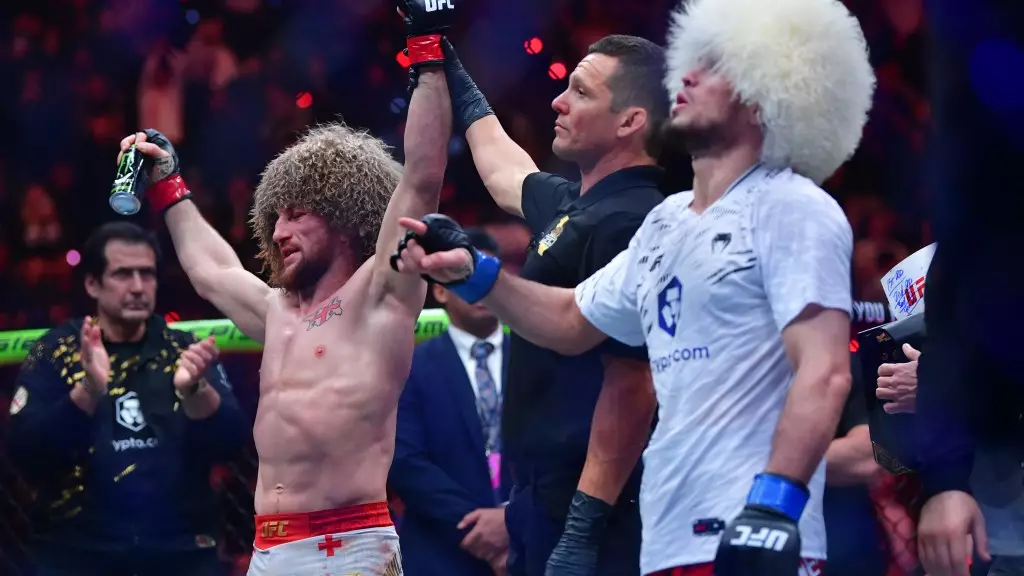The aftermath of UFC 311 has left a significant mark on Umar Nurmagomedov’s career. Following his unanimous decision loss to Merab Dvalishvili, which saw Dvalishvili retain the bantamweight title, Nurmagomedov expressed his thoughts on the outcome in a post-fight statement. Despite acknowledging that he did not emerge victorious, he stood firm in his conviction that the results skewed against him. This assertion raises questions about the subjective nature of judging in mixed martial arts and how fighters process defeat.
Nurmagomedov took to social media, highlighting his steadfast belief that he performed well enough to secure a win. He stated, “There are no excuses,” a powerful declaration that encapsulates the spirit of a fighter who is willing to take responsibility despite varying interpretations of his performance. However, his insistence that he did not lose is indicative of a deeper psychological struggle that many athletes face—reconciling personal belief with official outcomes. His words reflect the fierce pride and ambition that characterize a competitive athlete, but they also point to the emotional turmoil that accompanies a hard-fought loss.
The fight against Dvalishvili was not merely a contest of skill but also a test of resilience. Nurmagomedov revealed that he sustained a hand injury in the opening round, a factor that likely complicated his strategy as the match progressed. Images of the injury later circulated, substantiating his claims and adding a layer of complexity to the bout. While Nurmagomedov managed to stay competitive throughout the fight, the implications of his injury cast doubt on the fairness of the outcome. In combat sports, the physical and mental strains intertwine, affecting not just performance but also the perception of victory and defeat.
Despite the setback, Nurmagomedov’s message is a testament to perseverance. He emphasized the importance of dealing with injuries and returning to the sport with vigor. By invoking faith and his personal beliefs, he showcases a path forward that blends spirituality with the brutish reality of mixed martial arts. This duality is often seen in the narratives of athletes who experience defeat yet refuse to allow it to define them. As he prepares for future bouts, Nurmagomedov’s tenacity and unyielding spirit will play crucial roles in his climb back up the bantamweight ladder.
Umar Nurmagomedov’s experience at UFC 311 illustrates the multifaceted nature of competition in mixed martial arts. Beyond the physical prowess required to win, considerations of mental fortitude, personal belief, and external judgments reflect the intricate battles athletes face both inside and outside the cage. While Nurmagomedov may not hold the title today, his determination and outlook promise a resilience that can lead to greater achievements in his ongoing career. The saga of UFC 311 will resonate not only with him but with fans and fellow fighters who understand the relentless pursuit of greatness, often amid adversity and perceived injustices.

